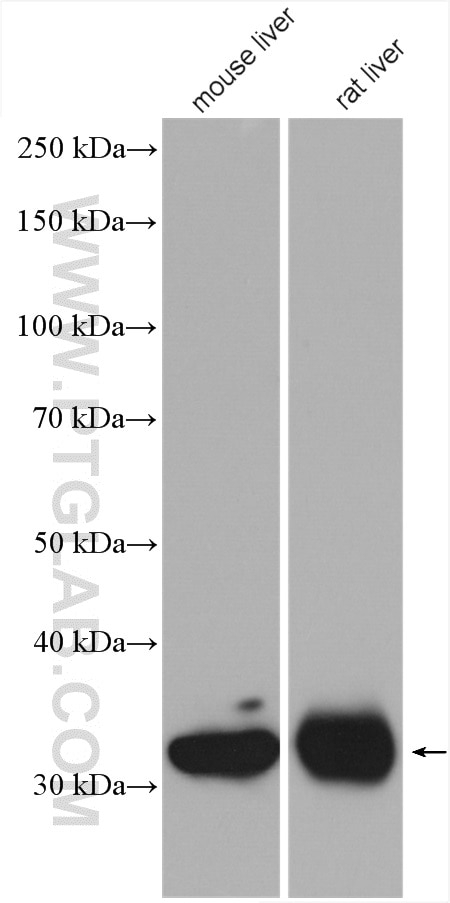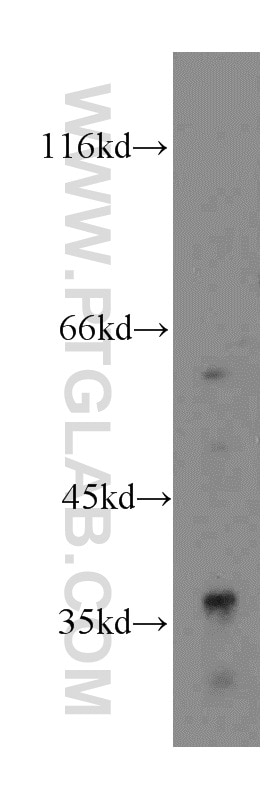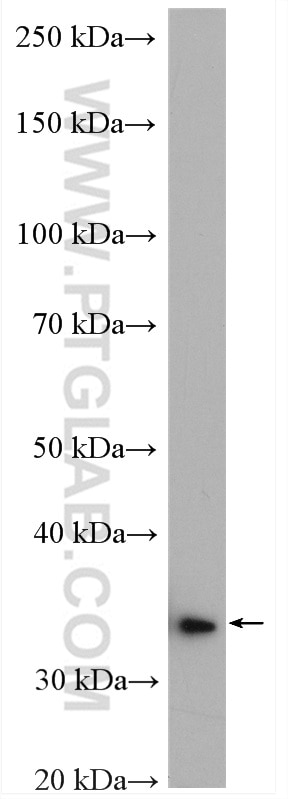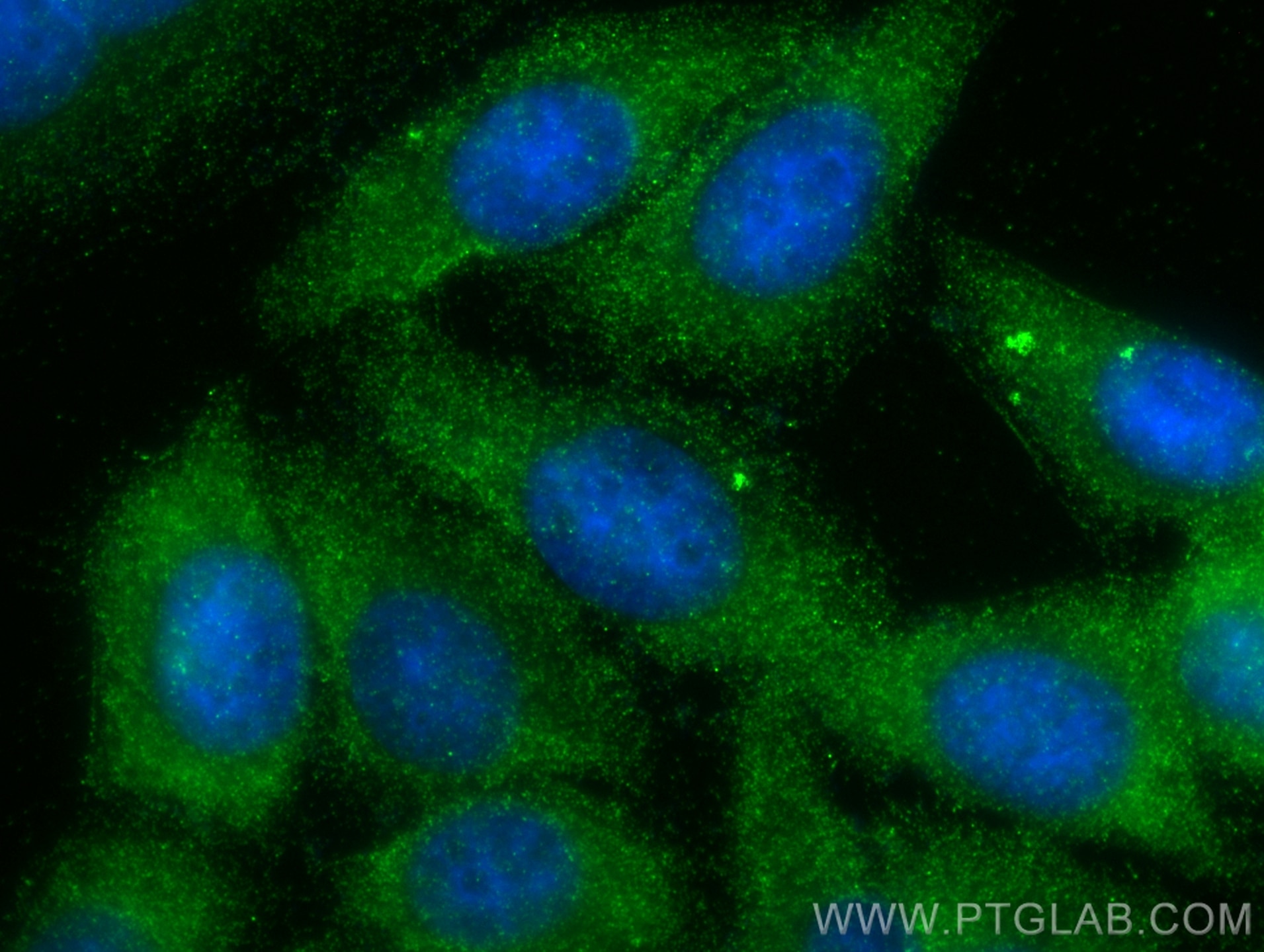Anticorps Polyclonal de lapin anti-GPD1
GPD1 Polyclonal Antibody for WB, IF/ICC, Indirect ELISA
Hôte / Isotype
Lapin / IgG
Réactivité testée
Humain, rat, souris
Applications
WB, IF/ICC, Indirect ELISA
Conjugaison
Non conjugué
N° de cat : 13451-1-PBS
Synonymes
Galerie de données de validation
Informations sur le produit
13451-1-PBS cible GPD1 dans les applications de WB, IF/ICC, Indirect ELISA et montre une réactivité avec des échantillons Humain, rat, souris
| Réactivité | Humain, rat, souris |
| Hôte / Isotype | Lapin / IgG |
| Clonalité | Polyclonal |
| Type | Anticorps |
| Immunogène | GPD1 Protéine recombinante Ag4278 |
| Nom complet | glycerol-3-phosphate dehydrogenase 1 (soluble) |
| Masse moléculaire calculée | 349 aa, 38 kDa |
| Poids moléculaire observé | 32-42 kDa |
| Numéro d’acquisition GenBank | BC032234 |
| Symbole du gène | GPD1 |
| Identification du gène (NCBI) | 2819 |
| Conjugaison | Non conjugué |
| Forme | Liquide |
| Méthode de purification | Purification par affinité contre l'antigène |
| Tampon de stockage | PBS only |
| Conditions de stockage | Store at -80°C. 20ul contiennent 0,1% de BSA. |
Informations générales
GPD1 (Glycerol-3-phosphate dehydrogenase 1) is an important enzyme belonging to the NAD-dependent glycerol-3-phosphate dehydrogenase family. Its C-terminal structural domain contains multiple helical structures for binding the substrate DHAP, and its N-terminal structural domain contains a β-folded core for binding NADH. GPD1 catalyzes the conversion of dihydroxyacetone phosphate (DHAP) and reduced nicotinamide adenine dinucleotide (NADH) to glycerol-3-phosphate (G3P) and NAD+, and plays a key role in carbohydrate and lipid metabolism. GPD1 also works with mitochondrial glycerol-3-phosphate dehydrogenase to form a glycerophosphate shuttle system that facilitates the transfer of reducing equivalents from the cytoplasm to the mitochondria. Abnormal activity of GPD1 has been associated with a variety of metabolic disorders, such as obesity, hypertriglyceridemia, and GPD1 has been implicated in cancer, potentially acting as a tumor suppressor.









